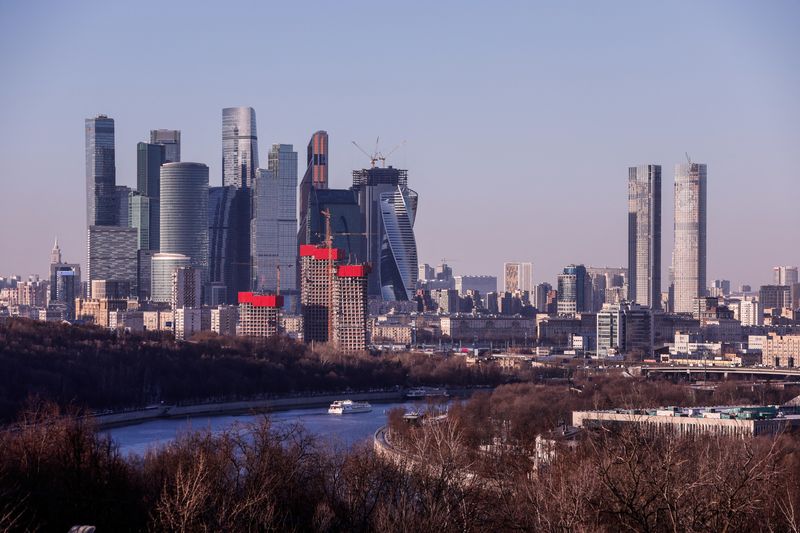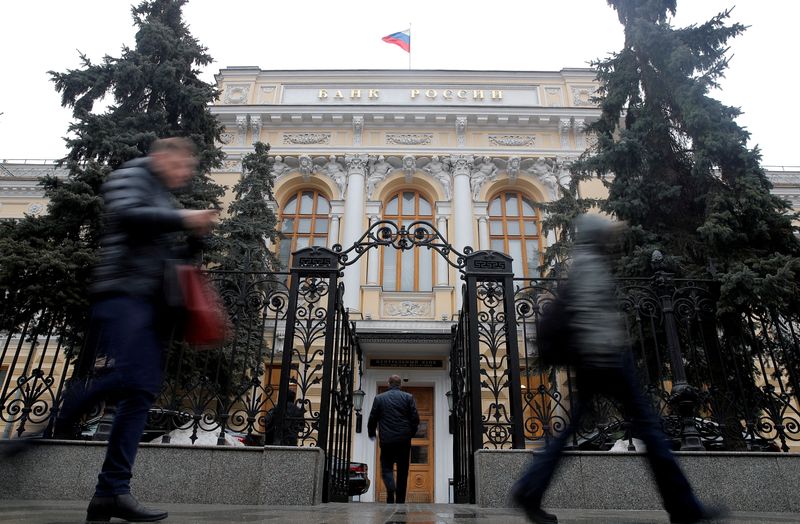(Reuters) - Consumer inflation in Russia in 2022 is expected to accelerate to its highest since 1999, while the economy will stage its deepest contraction since 2009 as a result of sweeping Western sanctions, a Reuters poll showed on Thursday.
Economic expectations have deteriorated drastically in the past few weeks as Russia took a hit from unprecedented Western sanctions designed to punish Moscow for what it calls "a special military operation" in Ukraine, which started on Feb. 24.
The average of 15 analysts polled in late March suggested the Bank of Russia will keep its key interest rate unchanged at 20% at the April 29 board meeting after an emergency rate hike in late February.
The central bank is expected to lower the key rate to 16% by year-end, keeping rates high to help tame soaring consumer inflation, which dents living standards.
In 2022, inflation is expected to accelerate to 23.7%, the poll showed, far above Russia's 4% target. A similar poll in late January predicted 2022 inflation at 5.5%.
Reuters suspended its February poll on Russia's main economic indicators due to uncertainty about the economic outlook.
The economy is on track to shrink by 7.3% this year, the poll showed, marking a shift in market expectations for 2.5% growth in the January poll.
"Russia plunged into economic and financial turmoil this month," Capital Economics said, predicting a deeper 12% economic contraction this year.
Rouble volatility also adds to inflation risks and financial turmoil. The Russian currency hit an all-time low of 120 to the U.S. dollar in Moscow trade on March 10 before recovering to around 83.50 on Thursday.

"We expect the rouble to anchor within a range of 80-85 to the dollar in April... The geopolitical situation will remain the factor of uncertainty for the rouble exchange rate," said Mikhail Vasilyev, chief analyst at Sovcombank.
The poll suggested the rouble will trade at 97.50 to the dollar 12 months from now.
